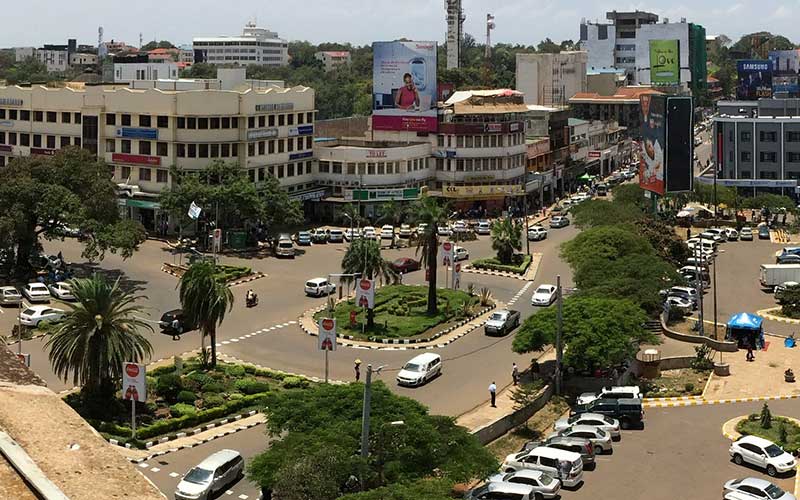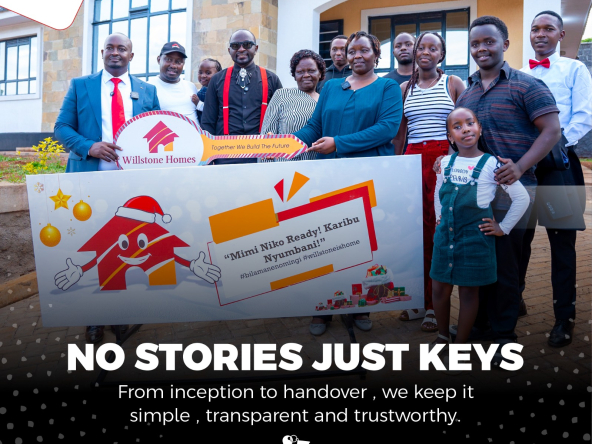In the fast-evolving real estate landscape of Nairobi and its satellite towns, an unlikely but powerful group of stakeholders is stepping into the limelight: religious institutions. Traditionally seen as centers of worship, many churches and mosques are now transforming into major players in the property market. From Syokimau to Ruai, these faith-based organizations are increasingly acquiring vast parcels of land for a variety of faith-based mixed-use developments, reshaping both community life and property values. As a result, religious institutions real estate Kenya has become a defining trend — where places of prayer are evolving into hubs of economic and urban transformation, driving a new era of development across the city’s outskirts..
The Shift from Sacred Spaces to Strategic Assets
Historically, religious institutions in Kenya owned land primarily for the construction of places of worship, cemeteries, and missionary schools. However, with Nairobi’s urban sprawl pushing populations into satellite towns, many religious groups are now reimagining their role. Church land development Syokimau and churches buying land in Ruai are not anomalies — they’re part of a broader trend of religious-led urban expansion.
Today, it’s common to find a church or mosque spearheading projects that include schools, medical centers, commercial blocks, and even low-cost housing. This strategy not only supports their mission-driven outreach but also generates sustainable income to fund their ministries.
Read Also: Diaspora Housing in Kitengela: Kitengela vs Karen
Why Satellite Towns?
Areas like Ruai, Syokimau, Joska, and Kitengela are seeing unprecedented interest from religious groups. The reason is twofold: land in these areas is still relatively affordable compared to central Nairobi, and these towns are experiencing fast population growth, driven by young families and first-time homeowners seeking affordable living.
Religious institutions real estate Kenya has grown as a keyword for more than SEO reasons — it represents a tangible shift in how institutions are diversifying their portfolios. Satellite towns offer the perfect storm: available land, growing populations, and fewer zoning restrictions compared to the city.
Case Study: Syokimau’s Church-Led Estate
In Syokimau, a large Pentecostal church has been quietly building what insiders now refer to as a “faith city.” It started with a sanctuary, then came a primary school, a secondary school, and a health clinic. Most recently, the church began constructing rental apartments and office spaces, making it a self-contained, thriving mini-township. This kind of non-profit property ownership Nairobi trend is drawing attention from urban planners and investors alike.
The Islamic Approach: Sustainable Community Development
On the other side of the religious spectrum, mosques have not been left behind. In areas like Ruai and Mlolongo, mosque property investment Nairobi is taking the form of endowments (waqf), where land is acquired and developed to benefit the community perpetually. This can include shops, madrasas, borehole projects, and affordable housing initiatives.
The strategic use of land under Islamic principles has ensured that mosque-led projects maintain a long-term vision focused on sustainability and community service. It’s not unusual to see mosques building schools and housing, creating inclusive and well-integrated neighborhoods.
The Economic Ripple Effect
Religious institutions bring more than spiritual services — they bring traffic, employment, infrastructure, and even political clout. When a church builds a school, it hires teachers. When it constructs a clinic, it needs nurses and admin staff. When housing is added to the mix, local businesses flourish. The real estate influence of churches is increasingly felt in the way it triggers entire ecosystems of growth.
Land near active church or mosque centers typically sees an uptick in value. This is especially true when the institutions are known to attract thousands of congregants. Developers looking for demand-ready neighborhoods often find proximity to such centers a strategic win.
The Regulatory Gray Zone
But this growing power comes with questions. Many of these institutions are registered as non-profits and enjoy certain tax exemptions. Yet, when they engage in large-scale commercial real estate ventures, questions arise around taxation, land use, and transparency.
Urban planners are calling for clearer guidelines on religious real estate trends Kenya, especially in light of growing concerns about zoning irregularities and overreach. Should a church-run apartment block be taxed the same way as a commercial development? Who should approve faith-based master plans? These are the new conversations shaping Nairobi’s urban development scene.
Urban Planning Meets Divine Design
One notable outcome of this trend is how religious institutions are now actively participating in Nairobi’s urban planning. They aren’t just buying land — they’re shaping how towns evolve. With many having access to both capital (via donations) and loyal communities, religious organizations can pursue long-term development goals in ways that private developers often can’t.
Their approach tends to be more community-centered, slower-paced, and values-driven. And this adds a different flavor to urban growth — one where social services, aesthetics, and ethics are part of the blueprint.
Read Also: Thika Road Housing Trends: Why Mini-CBDs Are Reshaping Suburban Nairobi
What’s Next?
Experts believe this trend is only getting started. As religious organizations continue acquiring land and developing it holistically, we may soon see entire townships anchored on faith-based governance models. Some urban theorists are even exploring partnerships between religious institutions and county governments to co-develop new zones with a focus on public good.
In Nairobi’s satellite towns, it’s increasingly clear that religious bodies are no longer just spiritual stewards — they are economic, architectural, and communal gatekeepers. They are churches shaping Nairobi suburbs in literal, brick-and-mortar ways.
The intersection of faith and property has opened up new frontiers in Kenyan real estate. Religious institutions real estate Kenya is not just a trend — it’s a paradigm shift. In a landscape where trust, vision, and community matter, churches and mosques have emerged as unlikely but formidable power brokers, crafting cities of the future in the name of the divine.
As Nairobi continues to grow outward, keep an eye on the skyline — the next tower may not be built by a developer in a suit, but by a pastor or imam with a vision and a congregation ready to build.





